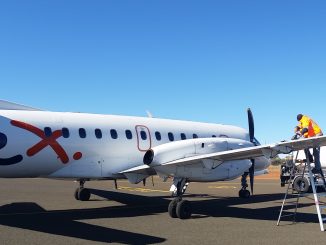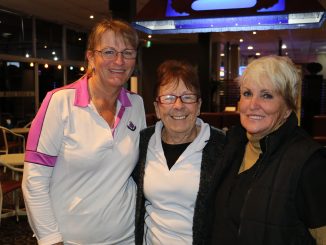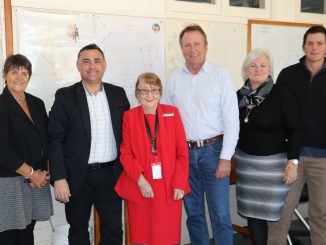
They followed a training plan, read guide books and history books, looked at photos and videos and talked to people who have walked the Kokoda Track however five locals say none of that could fully prepare them for the experience itself.
The group have just returned from walking the eight day, 96 kilometre gruelling, hilly and muddy track in Papua New Guinea.
All agreed that, in addition to testing their physical capabilities, the Kokoda experience also tested their minds, especially their levels of concentration.
Cobar Camels Old Boys John Carswell, Darran Wells and Brad Lennon, along with Brad’s two sons Alex and Rourke (who is just 16 years old), flew out of Australia on June 24 bound for what would be a once in a lifetime experience.
For the next eight days they followed in the footsteps of the Australian 39th Battalion soldiers who had fought the Japanese there 75 years ago. The Kokoda Campaign was one of the most famous conflicts of World War II.
Named after the village it passes through (Kokoda), Papua New Guinea’s most famous attraction brings people from all around the world to experience the rugged green jungles, steep mountains and ridges, rocky streams and important history.
The Cobar group was part of a fully supported guided tour of 14 and were led by an Australian guide.
While 10 locals were originally interested in the tour, after work and injuries, it was just six who started the recommended training program at the start of this year. (Damian Wray was to also travel with them, however his father passed away the week before he was due to leave. Damian plans to walk the track at a later date.)
Brad said the physical experience had not been as hard as he expected while John described it as “physically bearable”.
“It was certainly a challenge, mentally and physically, just knowing you were there walking in the footsteps of our diggers, our forefathers and then not knowing if my body was going to last,” Brad said.
“It was the level of concentration required that I did not expect at all,” John said.
“You had to be thinking every single step where you would put your foot next and every day was over 30,000 steps.”
Rourke said he expected it to be pretty hard.
“It lived up to the expectation,” he said.
Each of their eight days were long days (one day they walked for 10 hours). It started at 5.30am with breakfast which was followed up by a morning briefing from their knowledgeable guide about the section they were going to walk and significant events and battles that took place.
With rain every day and high humidity, Rourke said they were wet from the moment they started until they finished at the end of each day.
Highlights of the trek included meeting the locals, a visit to the Port Moresby Bomana War Cemetery, seeing first hand the trenches, unexploded shells and grenades used during World War II and hearing the personal stories of the Australian soldiers who had lost their lives on the Kokoda Track.
“The best part of the trip was finishing it,” John said. “That sense of accomplishment.”
While four of the five said they are happy to now tick Kokoda off their ‘bucket lists’ Brad is however keen to do it again.
“After talking to others who have done the trek two or three times, each time they go, they reckon they get more out of it, so I’m keen to do it again,” he said.


